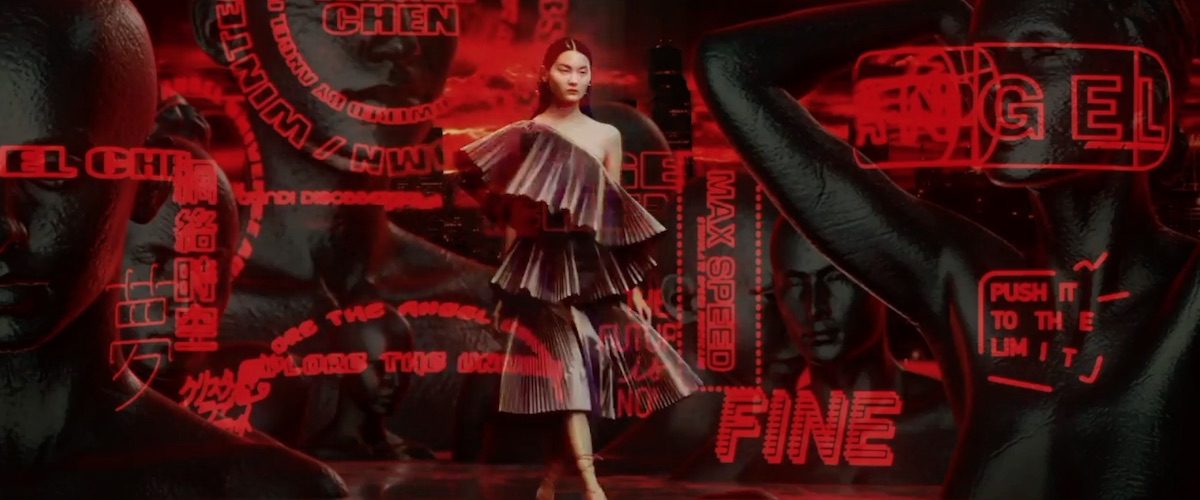The fashion industry has found itself at a pivotal moment, slowed down and reflective of a world that’s still reeling from COVID-19. At its essence, fashion is supposed to be a purveyor of innovation, the new and the fresh. But for a while, the constant carousel of fashion weeks and collections have become somewhat stale — and definitely unsustainable. “Fashion must move with the times, otherwise it’s not fashion,” said Jess Cartner-Morley in a recent Guardian article. With runway shows cancelled and designers changing their schedules to better suit their own ideals, what does the future of fashion look like?
Beginning in January, luxury fashion was one of the first industries to show signs of impact from the coronavirus pandemic, when China, a region responsible for a third of global luxury, was shutdown. Then, when the virus hit Europe, womenswear AW 2020 show schedules in New York, London, Milan and Paris were disrupted, sending fashionistas fleeing.
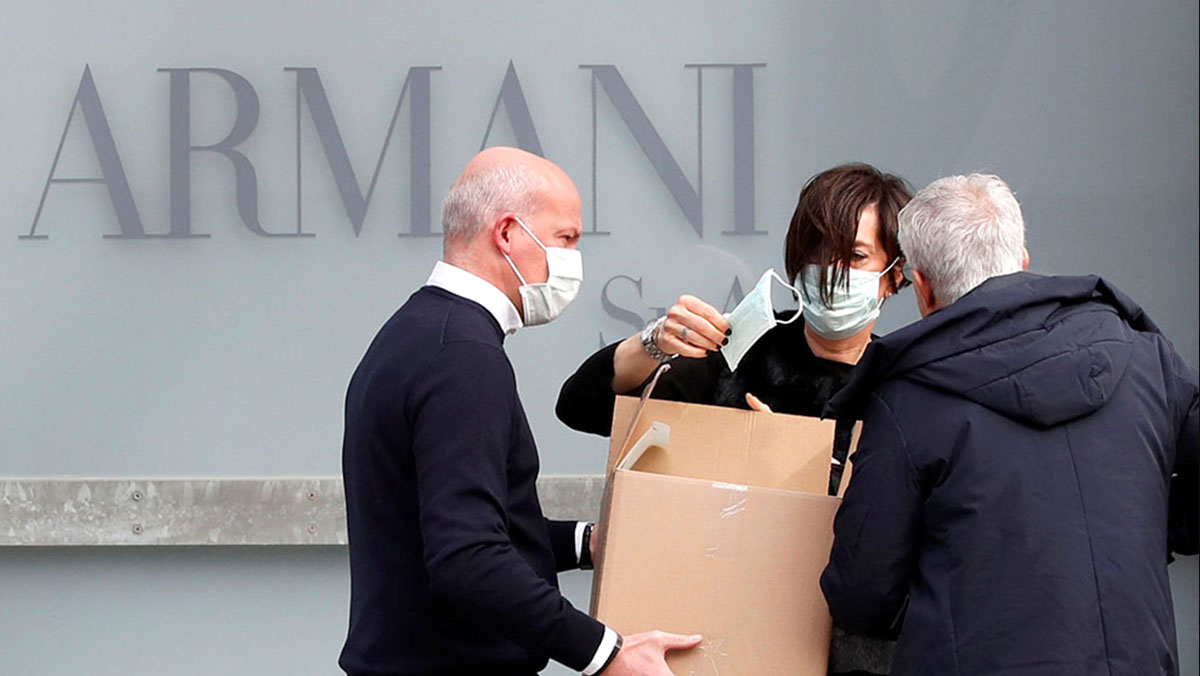
The pandemic saw multiple brands rise to the occasion, converting production facilities to manufacture personal protective equipment and hand sanitisers, along with donating money to hospitals and charities dealing with the virus.
But with the world in quarantine, the resulting lull has given the fashion industry time to breathe and evaluate the current cycle of multiple collections and fashion weeks.
In a letter to WWD last month, Georgio Armani called for a major rethink of changes in luxury fashion, believing it to be “immoral” for luxury fashion to adopt the pace of fast fashion — the drive to deliver more in pursuit of profits “yet forgetting that luxury takes time, to be achieved and to be appreciated.”
“It makes no sense for one of my jackets or suits to live in the shop for three weeks before becoming obsolete, replaced by new goods that are not too different,” said the iconic designer.
Saint Laurent, Gucci, Chanel and Dior all cancelled their cruise collections that were set to show in May. Menswear and haute couture runway shows scheduled for June and July have been cancelled and the September fashion weeks are still in doubt. Some designers have also cancelled production orders of their most recent collections.
This all begs the question, will social distancing and a potential impending global recession kill the catwalk forever?
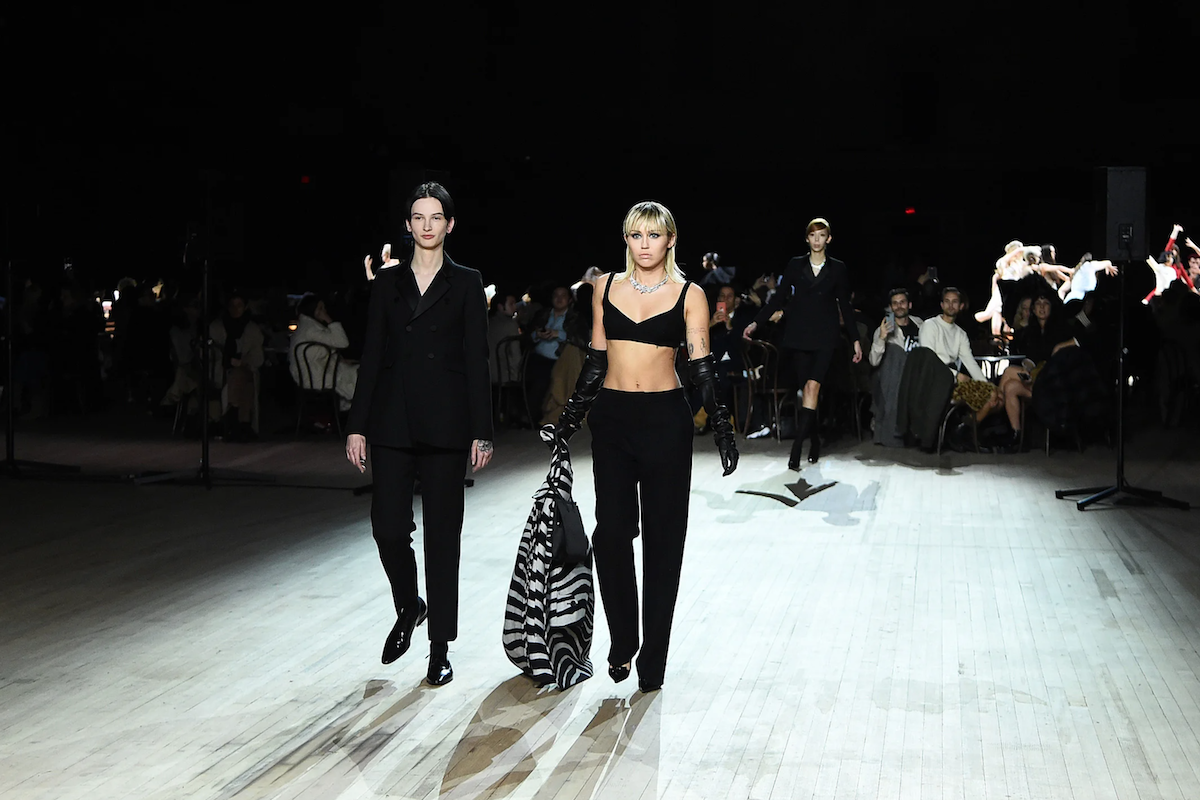
Production Disruption
Marc Jacobs put a halt on production for his AW 2020 collection that debuted on the runway in February. COVID-19 disrupted his company’s production schedule — from the lack of access to fabrics to the social distancing orders still in place in the U.S. and Italy.
“We weren’t able to produce our [fall] collection,” the New York-based designer explained to Vogue. “After we showed it in New York, it went to Paris, to the showrooms. Then all of this started with the coronavirus. And Italy, if you remember, shut [down] first. There was a lot of illness in Italy, but all our fabrics, every fabric we purchased with the exception of two, perhaps, came from Italy.
“To be honest, I don’t know what we’ll be doing or when we’ll be starting, but to design a collection I need my team,” he continued. “And my team needs to look at fabrics. And those fabrics come from Italy. And we travel, and there’s a lot of things that go on. Until we discover a new way to work — until we create a new way to work — or a new end goal to work towards, we really have nothing to do.”
Other designers have seized the opportunity to throw out the old establishment, to take this post-COVID world as an opportunity to downsize the excesses of an overcrowded and unrelenting fashion calendar — and also the enormous carbon footprint that accompanies it.
In April, Saint Laurent announced plans to eschew its Paris fashion week shows for the rest of 2020, citing coronavirus as the catalyst for change.
“Conscious of the current circumstance and its waves of radical change, Saint Laurent has decided to take control of its pace and reshape its schedule,” the company said in a statement. “Now more than ever, the brand will lead its own rhythm, legitimating the value of time and connecting with people globally by getting closer to them in their own space and lives.”
Anthony Vaccarello, artistic director at Saint Laurent, believes that in this time of global uncertainty, promoting glamour and excess is tone-deaf and not the message he wants the brand to send out.
“The COVID-19 pandemic has forced us to suddenly and completely change our habits, behaviour, and interactions with others,” Vaccarello told WWD. “It has had a violent impact, disguised in apparent calm. Our decision not to be part of any predefined calendar this year stems from our desire to recognise the importance of our time, of our life. A certain way of living more than a certain way of dressing. Slowing down and living the moment reveals all the vulnerabilities of an imprisoned organisation. What’s out of fashion now is the schedule of the entire system: the shows, the showrooms, the orders.”

In May, creative director at Gucci, Alessandro Michele, declared the fashion week calendar obsolete, and that he was slashing the number of fashion shows Gucci holds each year, from five to two.
“I think these are stale and underfed words… clothes should have a longer life than that which these words attribute to them,” he said via a virtual press conference from his studio in Rome. Instead, the brand will show “seasonless” collections twice a year. Michele also commented on the wastefulness of the endless manufacturing of garments, too, and the problem of sustainability.
“Above all, we understand we went way too far,” Michele said. “Our reckless actions have burned the house we live in. We conceived of ourselves as separated from nature, we felt cunning and almighty. We usurped nature, we dominated and wounded it. We incited Prometheus, and buried Pan.
“So much haughtiness made us lose our sisterhood with the butterflies, the flowers, the trees and the roots. So much outrageous greed made us lose the harmony and the care, the connection and the belonging.”
Is it time the fashion world evolved beyond runway shows and developed new ways to communicate with its audience in the digital realm?
The Digital Revolution
Digital fashion has clear sustainability benefits, reducing the amount of landfill waste by garment manufacturing and elaborate runway sets. Hannah Marriot, fashion editor for the Guardian, suggested that in the future, “shows could become even more immersive and hi-tech as the discipline evolves; 3D avatars wearing digitally created clothing, real models’ faces beamed on to 3D bodies and real models wearing real or digital clothing are all options.”
After all, digital supermodels and influencers are already “real”, so why not digital fashion?
“People are beginning to question the reason for a physical show and the value of a physical show when the technology exists to reach a much bigger audience through a digital space,” commented Matthew Drinkwater, head of the Fashion Innovation Agency at London College of Fashion.
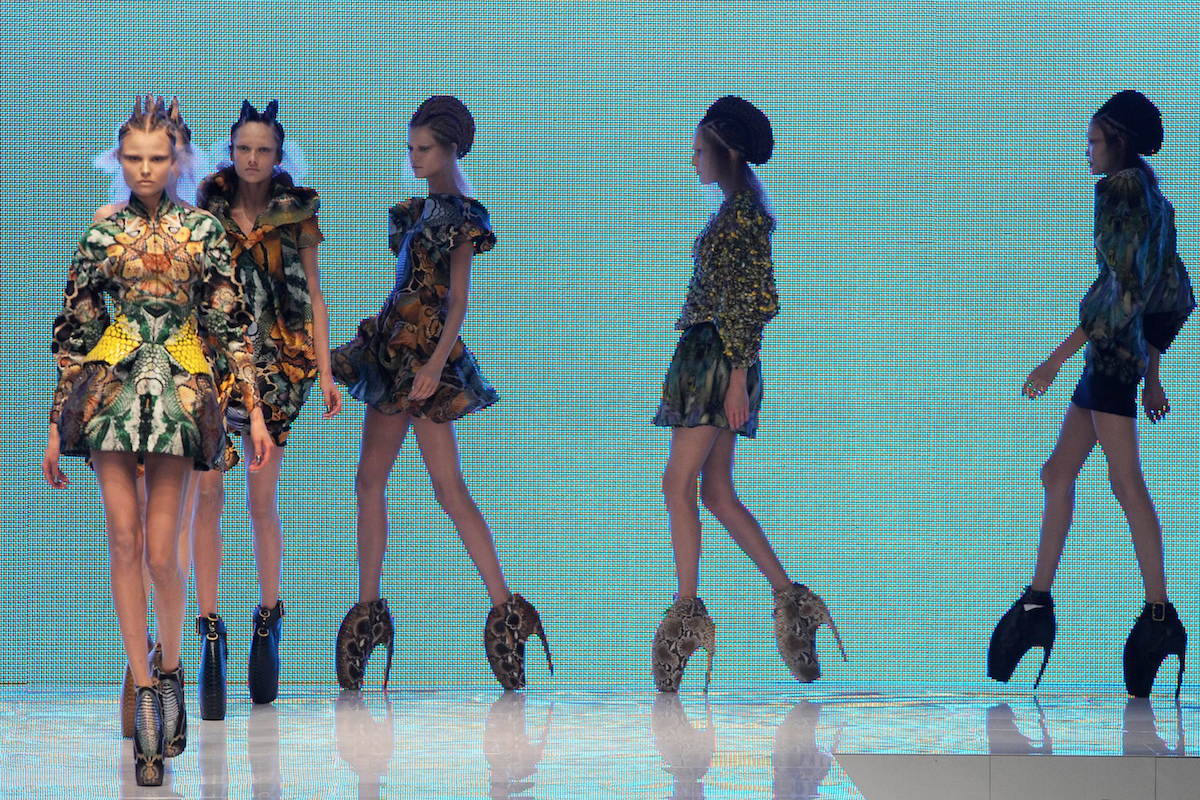
Alexander McQueen was a true visionary, with an inherent instinct for the zeitgeist. For his SS 2010 collection, Plato’s Atlantis, the British designer collaborated with Nick Knight and SHOWstudio for an industry-first event: live-streaming an entire runway show. However, there was a slight technical hitch. With only hours to go, Lady Gaga tweeted that her new song “Bad Romance” would be debuted during the show and the resulting surge in digital attendees — over six million — caused the site to crash and effectively ‘break the internet’.
Tragically, this was to be McQueen’s last collection. But it was a first for the fashion industry and paved a new digital pathway for designers to reach their audience. Now, fashion weeks around the world are building on this premise and transitioning to digital-only formats.
Chanel’s creative director Virginie Viard was first to embrace the digital realm for her Resort 2021 collection, working with photographer Karim Sadli to create the illusion of a Caprese sunset in Chanel’s Paris photo studio. Not only was this the first collection to be unveiled digitally by a major luxury fashion house, but it was also the first time in its history that Chanel has presented a collection without staging a show. View the full collection here.
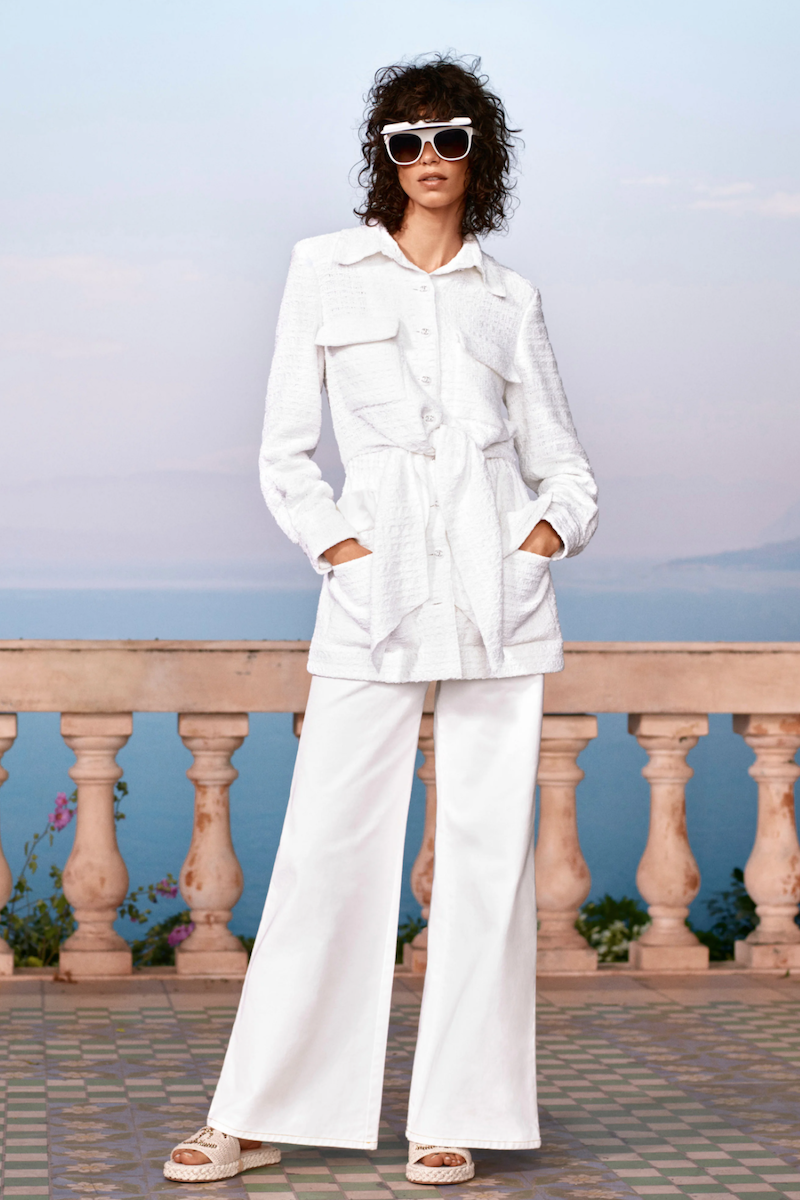
London Fashion Week will be the first city on the major fashion circuit to adopt a digital-only model, with the modified version scheduled to run during the previously scheduled dates for LFW: Men’s, from June 12 to 14. Caroline Rush, chief executive of the British Fashion Council, said in a release, “by creating a cultural fashion week platform, we are adapting digital innovation to best fit our needs today and something to build on as a global showcase for the future.
“Designers will be able to share their stories, and for those that have them, their collections, with a wider global community; we hope that as well as personal perspectives on this difficult time, there will be inspiration in bucket-loads. It is what British fashion is known for.”
From July 14 to 17, in place of the scheduled Milan Fashion Week, the Italian Fashion Chamber is hosting a digital experience for menswear and womenswear designers to show both pre-season and main-season collections.
“The idea of this digital fashion week is to have something a bit different from a normal fashion week. It’s something we thought of specially for the digital world,” Carlo Capasa, the president of the Camera della Moda, told Vogue. “It’s something very mixed. Everybody can decide their own message. The advantage is that in a digital world, you are completely free. You find your way of expression. We said to everybody, ‘You have from one minute to 15 minutes, and you decide what you want to show.’”
According to Vogue, Paris’s haute couture fashion week will go digital in July. All 41 couture-grade maisons have been invited to participate but some have already declined. Giorgio Armani and Jean Paul Gaultier have both announced that their shows would also be put on hold until January.
Unlike London and Milan, which are open to men’s and women’s designers, Paris will have a firmer structure focused solely on menswear brands, with a video-only format scheduled from July 9 to 13.
“Paris is where every designer aspires to show. This is not a goodbye to Paris fashion week, but a change that we feel is necessary in this moment and in these exceptional circumstances,” said Francesca Bellettini, president of Saint Laurent and president of Chambre Syndicale de la Mode Féminine, France’s governing body for womenswear.
New York, which cancelled its summer resort shows and postponed its men’s shows, has yet to announce a digital format.
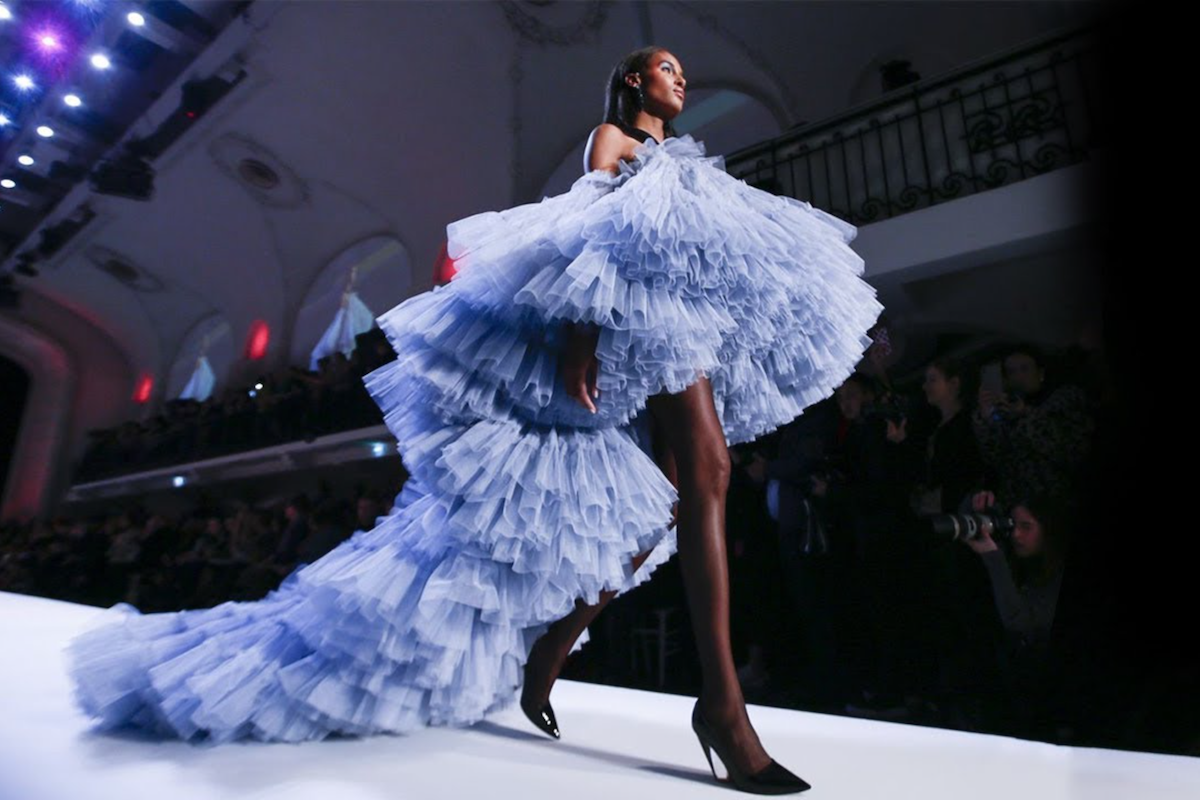
Earlier this year, Shanghai Fashion Week created the world’s first entirely virtual fashion week. Over 150 designers and brands live-streamed over 1,000 products from their newest collections, reaching 2.5 million over the three-hour opening session alone. For many designers, this showcase was a gateway for massive exposure and the perfect avenue to be discovered by new customers.
Helsinki Fashion Week will also be digital, a decision made prior to the pandemic for environmental reasons, with all collections to be created by a 3D artist. According to the website, the event to be held in July will be “[F]ocusing on sustainability from the very start, we are now taking sustainability to a whole new environment. We are using digital tools to strengthen our digital community, experience, and connection but most importantly letting our creativity run wild as there are no limitations in cyberspace.”
FNL Network, the fashion lifestyle TV channel on Roku Worldwide and Amazon Fire TV, is joining in, offering up International Digital Fashion Week (IDFW) where “designers across the globe can show off their latest collections sans on-site shows” in a more interactive way with video runways, fashion films, and presentations. IDFW will be broadcast globally across the network’s platforms via Roku TV, Amazon Fire TV, Apple TV, Android TV, Android and iOS devices.
The Future of Fashion Is Digital
“Fashion Week has lived the way it has for so long because it serviced our needs. This is the first time Paris Fashion Week has been disrupted since World War II,” Derek Blasberg, head of fashion and beauty at YouTube told Vogue Business. “It’s important to support these brands. We are indebted to the industry for creating content, for engaging our viewers, for offering some escapism at a time when people probably need that more than ever.”
Time will tell if this is the end of runway shows and fashion weeks as we know them, or what other changes will result in the aftermath of the COVID-19 pandemic. Fashion is innovation, fashion is new. And, for now, the future of fashion is digital.
Main image credit: Angel Chen, Shanghai Fashion Week 2020.
Stay with The Last Fashion Bible for the latest local and international fashion news.


